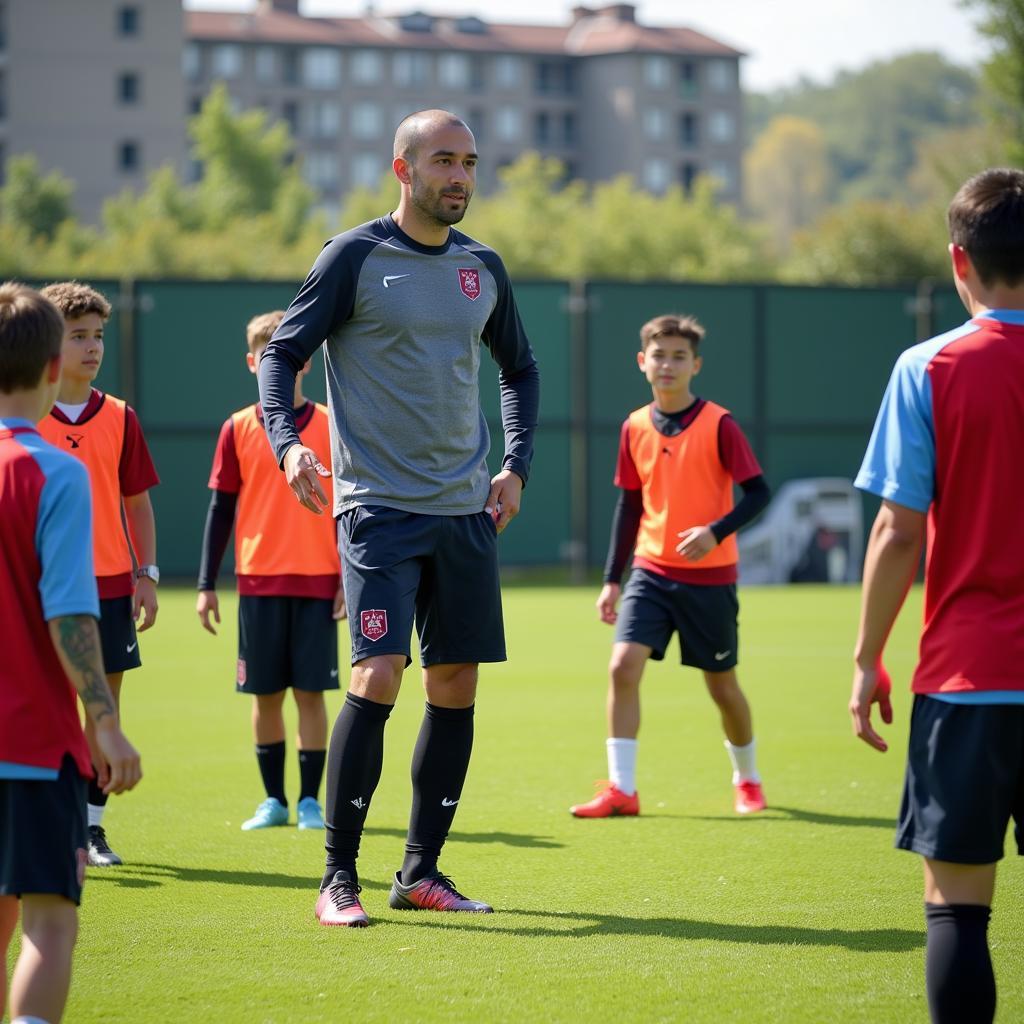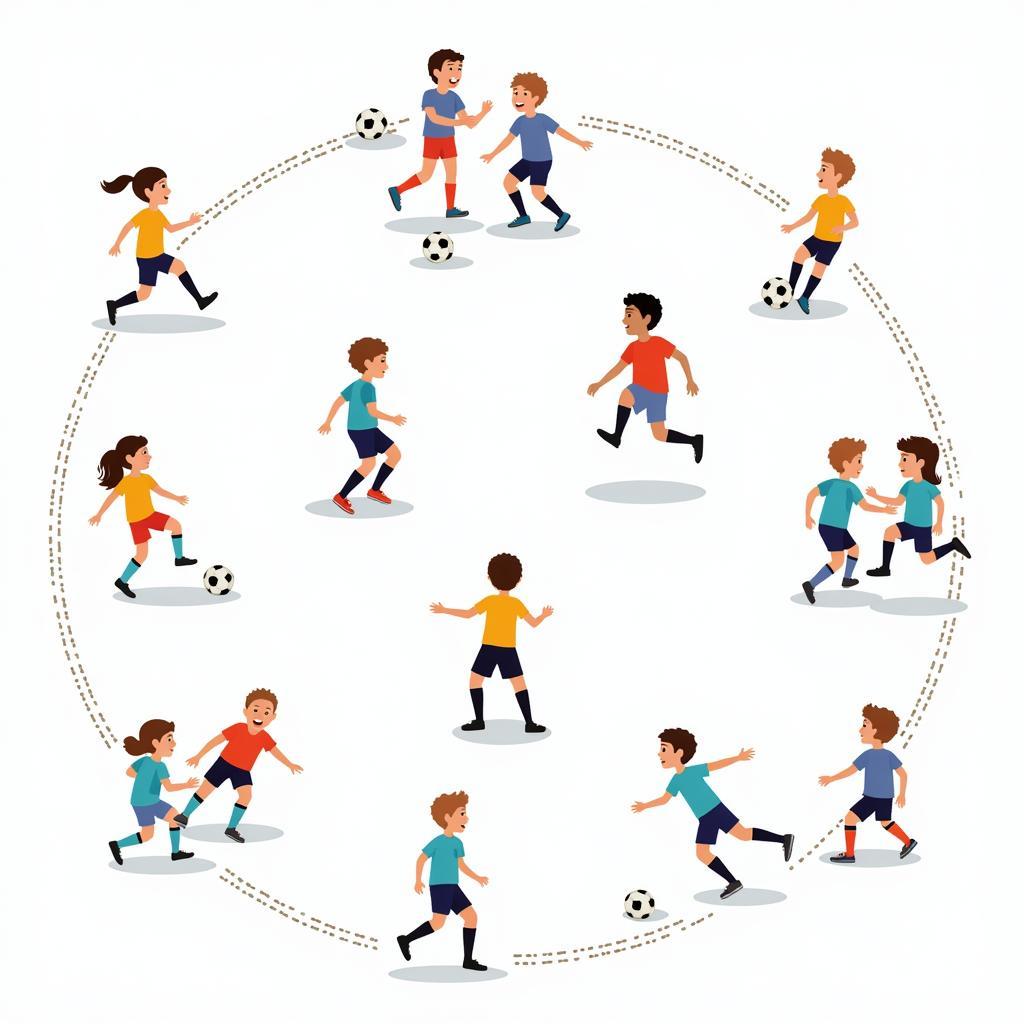
Marco Boscolo Nale Age: Understanding the Importance of Youth Development in Football
Marco Boscolo Nale, a name that might not be as familiar as Ronaldo or Messi, but in the world of youth football development, it holds significant weight. While fans globally obsess over the star players, the unsung heroes like Boscolo Nale work tirelessly behind the scenes, shaping the future of the beautiful game. But why is understanding the “Marco Boscolo Nale Age” – essentially, the crucial period of youth development in football – so important?
It all boils down to the simple fact that footballing prowess isn’t born overnight. It’s nurtured and cultivated from a young age, honed through years of dedicated training and expert guidance. Just like a seed needs the right conditions to blossom into a magnificent tree, young talents need the appropriate environment, coaching, and opportunities to reach their full potential.
 Marco Boscolo Nale Conducting Youth Training Session
Marco Boscolo Nale Conducting Youth Training Session
The Making of a Footballer: Why the Early Years Matter
Think back to your childhood, to the games you played, the skills you learned. Those formative years are crucial for development, and it’s no different in football. The “Marco Boscolo Nale age,” typically between the ages of 6 and 12, is when young players begin to develop their technical skills, tactical awareness, and love for the game.
During this period, the focus isn’t on winning at all costs, but rather on:
- Mastering the basics: From dribbling and passing to shooting and controlling the ball, these foundational skills form the bedrock of a successful footballing journey.
- Developing football IQ: Understanding the game’s tactical nuances, spatial awareness, and decision-making abilities are just as crucial as raw talent.
- Nurturing a passion for the sport: Creating a positive and enjoyable learning environment fosters a genuine love for the game, a vital ingredient for long-term success.
 Young Footballers Developing Skills
Young Footballers Developing Skills
Marco Boscolo Nale and the Philosophy of Holistic Development
Marco Boscolo Nale isn’t just about churning out technically gifted players; his philosophy emphasizes a holistic approach to development. It’s about nurturing well-rounded individuals, both on and off the field. This includes:
- Physical development: Building strength, agility, and coordination through age-appropriate training regimes.
- Mental fortitude: Developing resilience, focus, and the ability to perform under pressure.
- Social skills: Instilling teamwork, communication, and leadership qualities through the medium of football.
This comprehensive approach ensures that young players are equipped not only to excel in football but also to navigate the challenges of life with confidence and character.
Investing in the Future: The Long-Term Impact
The dedication and expertise invested in the “Marco Boscolo Nale age” yield significant long-term benefits for both individual players and the sport itself:
- A stronger talent pool: By nurturing talent from a young age, we create a larger and more competitive pool of players for the future.
- Increased global competitiveness: Investing in youth development elevates the standard of play, allowing nations to compete at the highest level internationally.
- A lifelong love for the game: When children develop a genuine passion for football, they are more likely to remain engaged with the sport throughout their lives, whether as players, coaches, or fans.
Conclusion: A Shared Responsibility
Understanding the significance of the “Marco Boscolo Nale age” is not just the responsibility of coaches and academies; it’s a shared duty for parents, fans, and anyone passionate about the future of football. By supporting and encouraging youth development initiatives, we contribute to a brighter future for the beautiful game, ensuring that the legacy of skill, passion, and sportsmanship continues to thrive for generations to come.